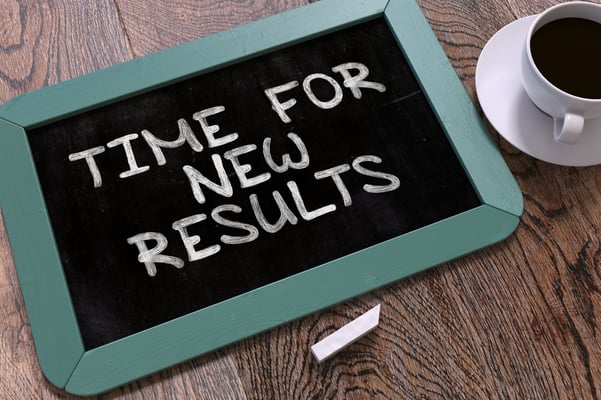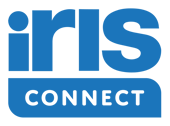 There is one quality above all others that makes a good teacher - the ability to reflect on what, why and how they do things and to adapt and develop their excellence in teaching. As the Lifelong Learning UK Standards make clear, reflection is a core component of effective continuing professional development (CPD) and key to becoming a skilled teacher.
There is one quality above all others that makes a good teacher - the ability to reflect on what, why and how they do things and to adapt and develop their excellence in teaching. As the Lifelong Learning UK Standards make clear, reflection is a core component of effective continuing professional development (CPD) and key to becoming a skilled teacher.
But teacher reflection is not just essential for teachers. According to research by Prof. John Hattie, developing excellence in teaching has the single most powerful influence on student achievement. Read more about the benefits of self-reflection >
Here are some of the challenges that teachers face when reflecting on their own practice and, more importantly, how you can overcome them.
The challenges of teacher reflection
1. Perspective
Perspective is a challenge of teacher reflection as it can be difficult for educators to see their teaching from alternative viewpoints. A teacher may believe they are delivering a lesson to engaged students, however from a students or inspector's perspective, they may be disengaged, or struggling to understand lesson material. Failure to use multiple perspectives can limit the teachers ability to gain new insights into their teaching practice and identify areas of improvement.
2. Focus
We don’t always focus on the right things; it’s easy for teachers to dwell on problems rather than objectively review the lesson as a whole. It can be difficult for teachers to identify which aspects of their teaching practices to reflect on and the factors that are most impacting the lesson.
3. Memory
Research shows that the ability to accurately recall a lesson some time afterwards is limited. The task of teaching a lesson is already a large undertaking for the brain to accomplish - include the task of remembering every students success and failures, how well students responded to strategies and many more tiny details that determine the impact of teaching practice, has potential to cause cognitive overload.
4. Isolation
Self-reflection is typically a private, personal experience. Making teachers take a real, deep look at their experiences can be difficult as it requires you to be honest and critical of yourself.
5. Recognising progress
Setting measurable benchmarks for progress is difficult when the process of traditional self-reflection relies on subjective feelings about practice. It is easy to focus on mistakes or rather than the improvements that have been made. It is also difficult when teachers don't have access to data that would help them measure progress over time, such as student performance data or observations from colleagues or mentors.
6. Understanding of self
It’s difficult not to cloud reflections on our performance with our perception of our abilities, traits and personality. It's challenging for teachers to objectively assess their own beliefs, attitudes, and biases. Teachers may have certain assumptions about themselves or their teaching practices that can be difficult to identify and challenge without the help of external feedback.
How to overcome teacher reflection challenges
To overcome challenges such as lack of perspective, limited memory or focus, teachers can use a variety of tools available to them which enables them to continuously improve their teaching practice. Traditional methods like keeping a teacher journal or having a student or colleague observe a lesson and feedback, solves part of the problem, but come with their own limitations. Educators are choosing to use video as a method of capturing and reflecting on their teaching practice.
Perspective - Video allows teachers to view their teaching from the viewpoint of an observer or student, which gives an honest account of the lesson, and incorporates a low stakes method of observation.
Focus - The use of video is beneficial for focus as it allows the ability to gain feedback from colleagues, coaches and more experienced educators. This feedback can be important in adjusting to the needs to of the pupils. Knowing that a camera is recording most interactions means that teachers can focus on delivering the lesson, and review at a later stage.
Memory - Video enables teachers the chance to rewatch and pick up on classroom activities that could have been missed in real time, or by an observer.
Isolation - Understanding that reflection is one of the best forms of professional development can help start to put it into practice. In the first instance, keeping reflections private can be a good first step in getting comfortable with watching yourself teach. After getting more comfortable, share reflections with trusted colleagues to gain feedback and continue to improve.
Recognising progress - Building a library of practice of many months/years is a great resource for assessing progress. Going back to the first reflection after some time can show the improvements made.
Understanding of self - By using video and therefore developing a deeper understanding of themselves and their teaching practices, teachers can become more effective educators and create a more positive and equitable learning environment for all students.
Learn more about video technology in the classroom.
How IRIS Connect overcomes teacher reflection challenges
Professional athletes use video to stay on top of their game. Politicians use video to perfect their speeches. Surgeons use video to continually refine their skills. All of these professionals study videos of experts in their fields to emulate great performance, to be inspired by new ideas and to identify areas of improvement. These professionals have been using video for decades because it works, and teachers can do the same.
Video allows teachers to reflect more effectively and accurately on their performance and to see the lesson as a whole from the students perspective, rather than relying on memory. It also allows them to get feedback from others and to objectively measure progress, helping them to gain greater understanding of their own abilities and traits.
“If you look at the research it says that about 80% of what happens in a class a teacher does not see or hear. How can we get more eyes into the class? How do you get other teachers going in there, looking at the impact and feeding back to help the teacher see what it’s like being a student in their classroom? I’m a great fan of recording classrooms and using video to show teachers how they look to students. That’s the power of video, it’s another way to see your impact” - Prof. John Hattie.
While feedback from others is helpful, video brings a new level of depth and awareness to teacher reflection; a firsthand sense of self rather than the hearsay of others, making it a highly effective tool for teacher CPD. Read more about why filming your practice is an essential part of professional development >
IRIS Connect enables teachers to capture an objective record of teaching and learning that can be shared. Using the IRIS Connect mobile app for classroom practice or Screen Capture for online practice, teachers record their lessons which are automatically uploaded to the IRIS Connect secure web platform. Once there they can privately view the videos and annotate their teaching practice using time-linked notes and analytical tools.
These videos become an invaluable resource for the individual teacher and wider school, allowing many teachers to benefit from the solutions of successful teachers.
Read more about teacher reflection by downloading our FREE practical guide to 'Enabling effective teacher reflection' >



Leave a comment:
Get blog notifications
Keep up to date with our latest professional learning blogs.